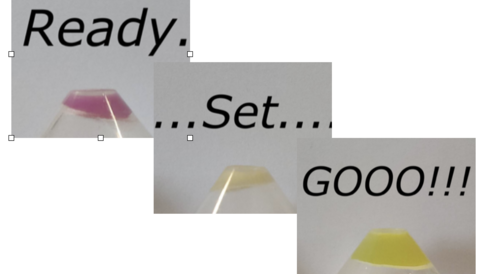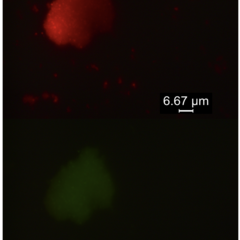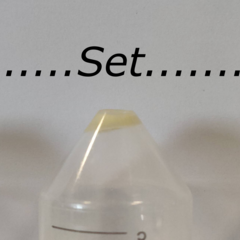
Colourful proteins for colourful science! The Cambridge Analytical Biotechnology (CAB) team has been working on locally producing recombinant proteins to provide
laboratories in low-to-middle income countries a low cost, self-sustaining source of enzymes. This feeds directly into the sustainable approach of the AfriDx project to develop local capacity. Leveraging the capacity of CAB, only yesterday, plasmids were shipped to AfriDx partners in Ghana. This marks the begining of the journey towards equipping partners in Ghana to locally produce MMLV, Bst for RT-LAMP and scFVs thus removing reliance on importation and reducing supply chain risk. This is the overall objective of the AfriDx Work Package 3.Many scientists and researchers constantly talk about efficiency and optimisation. Although the effectiveness of the catalyst is a very crucial and important piece of the overarching puzzle, simplicity too is an important but often overlooked component. Uptake of cool and powerful technology can be slow or unfeasible if the system is too complicated.
The basics of molecular biology is truthfully not too complicated but can be very daunting to newcomers. Is the protein being produced? Have I incubated long enough? Why are there so many types of gels!? One of the ways the CAB team has been trying to ease the training and development of beginners to this field is by using genetically fused fluorescent proteins. Having fluorescently labelled enzymes allows users to quickly determine whether the protein has been produced, where the protein is located, and how optimal purification and/or immobilisation protocols are. And this can be done by simply taking absorbance and/or fluorescence measurements, or even just visually without any equipment!
Furthermore, with all the brilliant work being conducted with novel and old fluorescent proteins, the option in colour seems almost endless. Here in the CAB team, we have a strong preference for mCherry. The nice red hue of the protein provides a good contrast against the yellowish media used for bacteria growth. In addition, it is not only very stable, but can even improve the stability of its partnered enzyme! What more can a molecular biologist ask for?
Unfortunately, molecular biologists are very demanding….and they do want more. For that reason, the CAB team is standing by for a:


